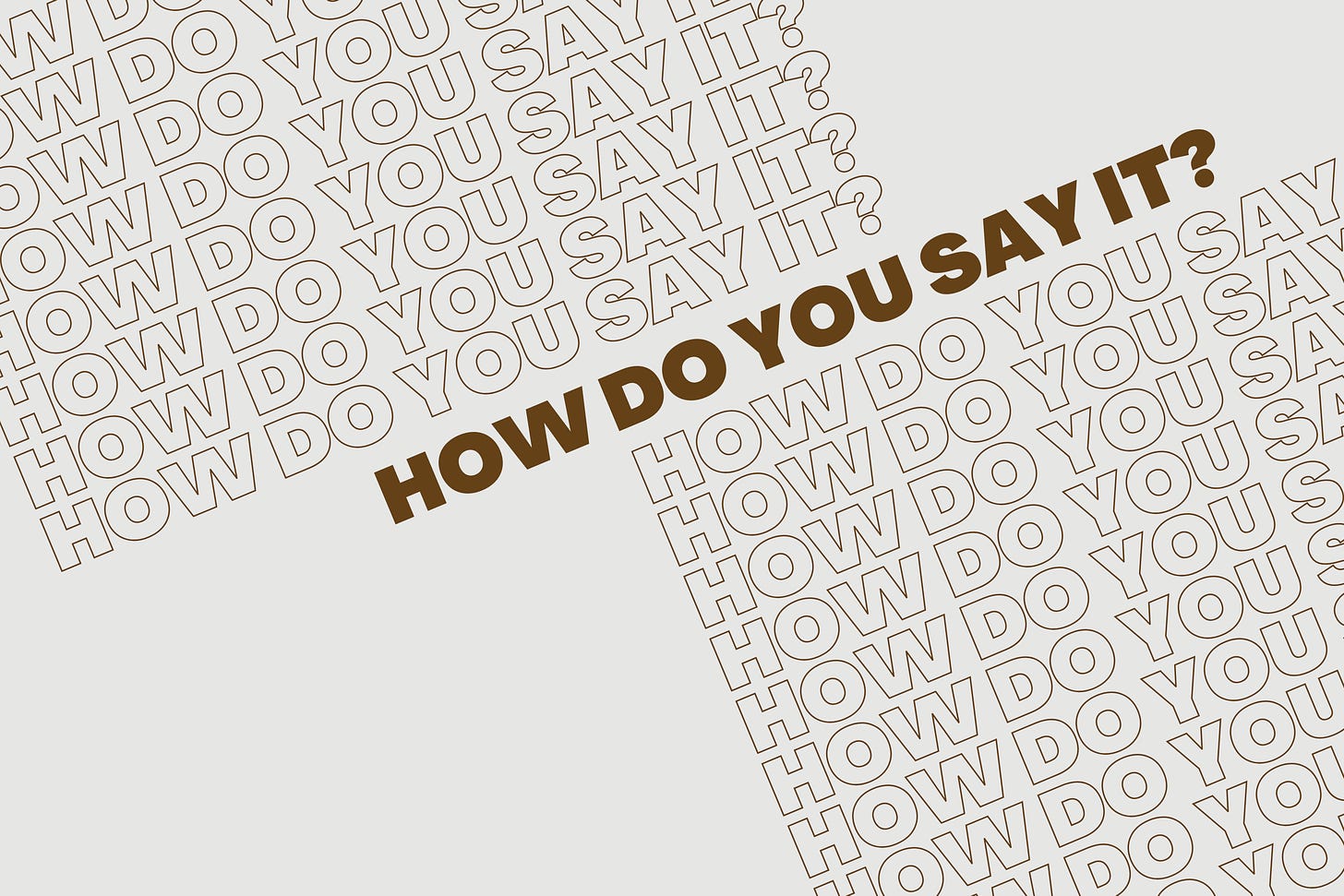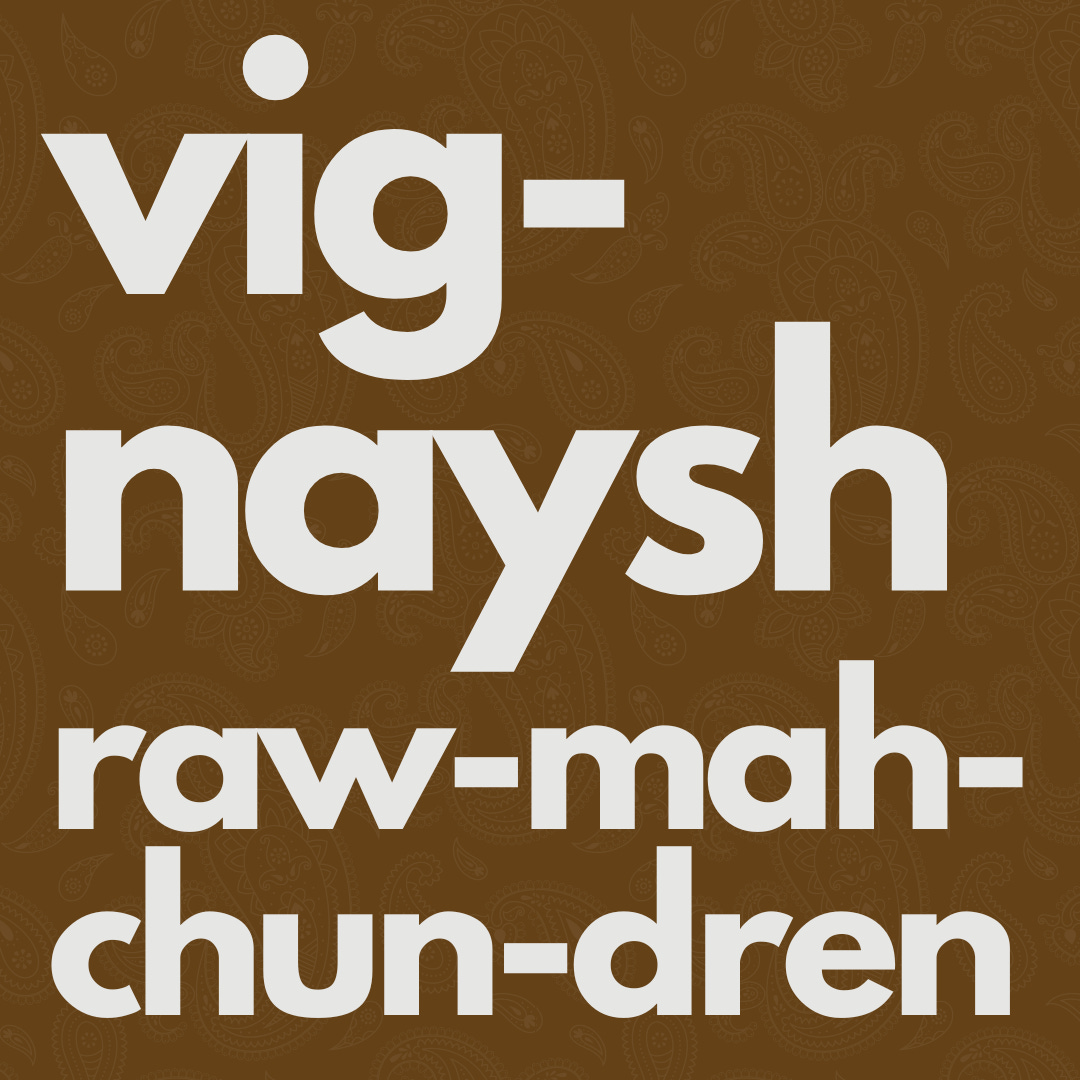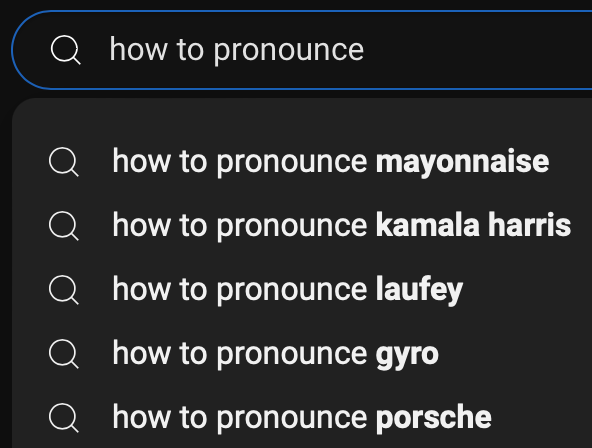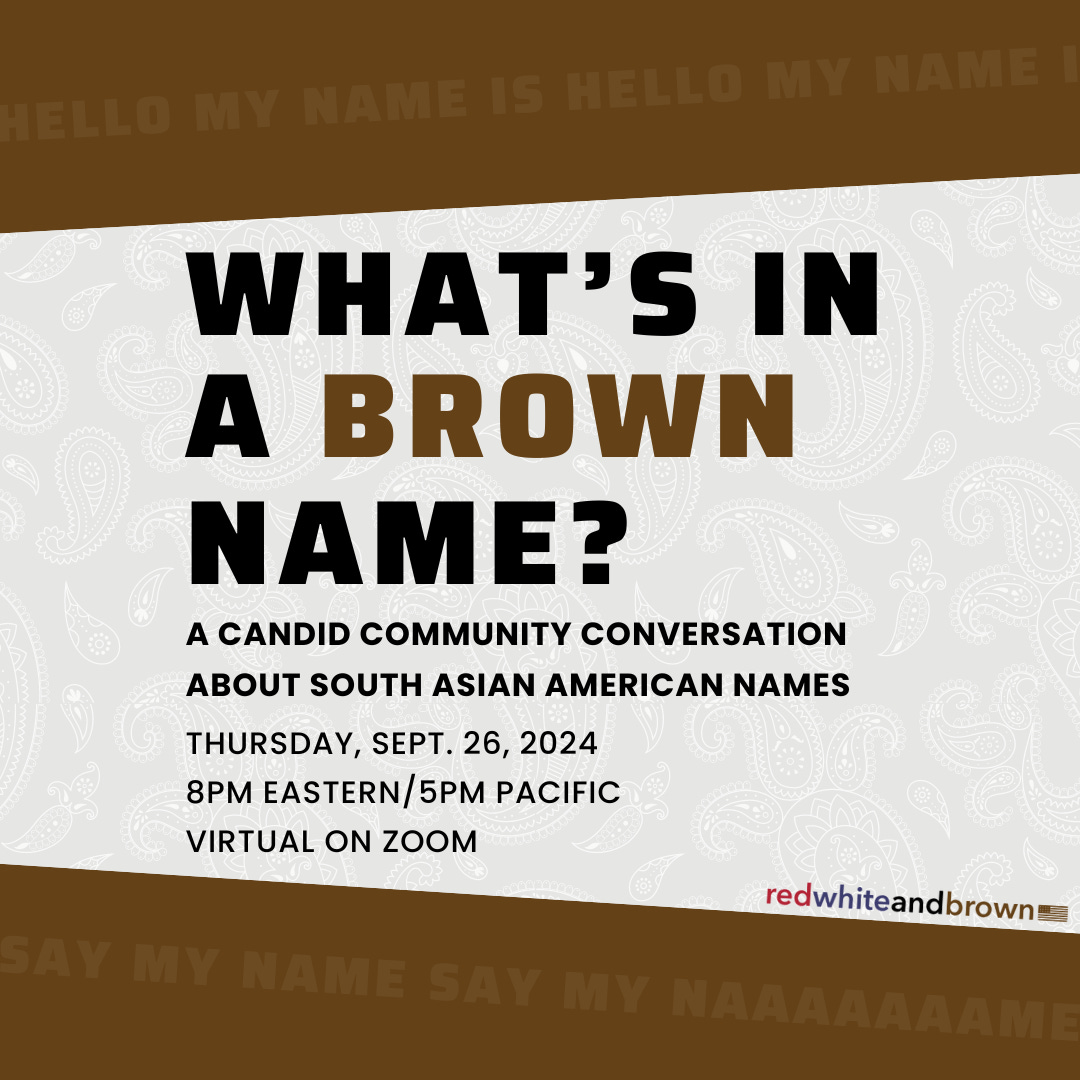How do you say it?
Why name pronunciation is a thing. Plus, our first South Asian American names event is online TONIGHT!
Issue #77
Hi all,
Even though my name is fairly phonetic — with no silent letters or anything too tricky — like many other South Asian Americans, I’ve sometimes gotten the reaction: “I’m not even going to try to say it. I don’t want to butcher it.”
No, please “butcher” it. Just try, please. I get it: my last name, Ramachandran (12 letters), is especially long. But so is Blagojevich (11 letters), Schwarzenegger (14 letters) and Galifianakis (12 letters), and those names can be arguably harder to pronounce for a typical English speaker.
I cannot speak for everyone with a unique name, but in my opinion, I’d rather someone try to pronounce a name than just give up. Personally, I am not offended when either my first or last name is mispronounced but rather thankful someone took the effort to give my name dignity by attempting to say it — as I do theirs.
To help out, we are fortunate these days to have a whole bustling genre on YouTube about how to pronounce a name (a Vignesh video, for example, has more than 11,000 views). Below is what auto-fills the I started to type “how to pronounce” on YouTube. The vice president ranks just below a contentious condiment:
Clearly from the predictive search ranking above, many Americans are learning how to say Kamala Harris’ Sanskrit-derived first name, which is commendable — politics aside. Kamala is a name that many non-Brown Americans might not have previously encountered. I checked: Kamala is not in the top 1,000 U.S. names for any year of birth beginning since at least the year 1900, according to the Social Security Administration’s records.
But, we also know the politics of pronunciation can complicate the discourse these days, with prominent figures like Donald Trump often purposely mispronouncing Harris’ first name, as a sign of disrespect or to other her.
Harris says her first name is pronounced COMMA-LA, though many South Asian Americans might instinctively say a more traditionally common pronunciation, KUM-UH-LA.
While I admit I still cringe when I hear fellow Americans say EYE-RACK or EE-RACK instead of EH-RAWK for Iraq, a country we invaded, I am definitely not one to be policing pronunciation.
As comedian Rajiv Satyal wrote in The Washington Post, ultimately, a person’s name pronunciation is decidedly correct by one source:
Who gets to decide how to say your name? Is it up to you? Your parents? Society? I asked a lot of folks, and individuals of all ethnicities resoundingly answered: You.
Yes, you.
So far, that’s something Red, White and Brown is consistently hearing in interviews with South Asian Americans across the country for our Brown Names project (follow the project’s new Instagram account). Each person has their own preferred pronunciation of their own name. Something that is so innately tied to one’s identity means they also have the prerogative to say how it’s pronounced.
I also acknowledge pronunciations can be hard, especially across cultures and languages. If my former grad school classmate is reading this, he will correctly point out that I never get the nuanced tone of his Chinese name perfectly right: Erchi. But I will always try.
Thanks for reading,
Vignesh
P.S. What’s the story of your name? Fill out our short questionnaire if you’d like to participate in our reporting project, Brown Names.
TONIGHT: “What’s In A Name?” - Our first community conversation about names (free on Zoom)
For the past few months, we’ve been talking with South Asian Americans about their names for a long-term reporting and archival project about names in our communities, our relationships with them, the meanings, the complex histories and identity.
TONIGHT (Thursday, Sept. 26), Beena Raghav is anchoring a conversation about all-things South Asian names live on Zoom. We’ll have two experts join us: Dr. Amrita Ghosh, assistant professor of South Asian literature at University of Central Florida; and Dr. Shyam Sriram, assistant professor of political science at Canisius University.
We hope you can attend. Click this link to RSVP to the Zoom discussion, which is at 8 p.m. Eastern/7 p.m. Central/6 p.m. Mountain/5 p.m. Pacific.
Your thoughts
Please reply to this email to share your feedback or ideas.
You can also directly text message Vignesh at 773-599-3717 on SMS or Signal.
Red, White and Brown Media facilitates substantive conversations through the lens of South Asian American race and identity — via journalism, social media and events. Please tell your friends and family to subscribe to this newsletter.






